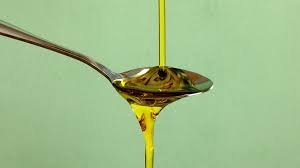Breast cancer is a topic that’s often clouded with misinformation and misconceptions. To truly understand this condition and its impact, it’s essential to separate myths from facts. In this article, we debunk common myths surrounding breast cancer and shed light on the crucial facts that everyone should know.
Myth: Only Women Are Affected by Breast Cancer Fact: While breast cancer is more common in women, it can also affect men. Though rare, men can develop breast cancer due to the presence of breast tissue.
Myth: Breast Cancer Only Occurs in Older Women Fact: While the risk increases with age, breast cancer can develop at any age, including in younger individuals. Regular breast health awareness is important regardless of age.
Myth: A Family History Guarantees Breast Cancer Fact: Having a family history of breast cancer increases your risk, but most cases occur in individuals without a family history. Other factors, such as genetics and lifestyle, also play a role.
Myth: Only Lumps Indicate Breast Cancer Fact: While lumps can be a sign, breast cancer can present as changes in size, shape, or appearance of the breast, nipple, or skin. Unexplained pain should also be investigated.
Myth: Deodorants and Bras Cause Breast Cancer Fact: There’s no scientific evidence linking deodorant use or bra type to breast cancer risk. These concerns are not supported by research.
Myth: Mammograms Cause Breast Cancer Fact: Mammograms use low doses of radiation and do not cause breast cancer. The benefits of early detection far outweigh the minimal risks of radiation exposure.
Myth: Breast Cancer Is Always Painful Fact: Breast cancer doesn’t always cause pain. Many cases are painless, underscoring the importance of regular self-exams and screenings.
Myth: Small Breasts Have Lower Cancer Risk Fact: Breast cancer risk is not determined by breast size. Factors like genetics, hormone exposure, and lifestyle contribute to risk.
Myth: Breast Cancer Surgery Always Leads to Disfigurement Fact: Advances in surgical techniques aim to preserve breast shape and appearance. Many surgical options exist to maintain a natural look.
Myth: A Positive Family History Means Inevitable Breast Cancer Fact: A family history increases risk, but it doesn’t guarantee breast cancer. Regular screenings and lifestyle adjustments can mitigate risk.
Conclusion: Breast cancer awareness is vital, but it’s equally crucial to base that awareness on accurate information. By dispelling myths and understanding the facts, individuals can take proactive steps towards early detection, healthy lifestyles, and informed decision-making. Empowering ourselves and others with accurate knowledge is a powerful tool in the fight against breast cancer.
FAQs: Q1: Can men develop breast cancer? A: Yes, although rare, men can develop breast cancer due to the presence of breast tissue.
Q2: What’s the role of genetics in breast cancer risk? A: While some breast cancers are linked to genetic mutations like BRCA1 and BRCA2, most cases are not solely attributed to genetics.
Q3: How often should women get mammograms? A: Guidelines vary, but most recommend starting regular mammograms around age 40-50, earlier if there’s a family history or other risk factors.
Q4: Can a healthy lifestyle reduce breast cancer risk? A: Yes, maintaining a healthy weight, being physically active, limiting alcohol, and not smoking contribute to lower risk.
Q5: What’s the importance of breast self-exams? A: Regular breast self-exams familiarize individuals with their breast tissue, making it easier to notice changes that warrant medical attention.








